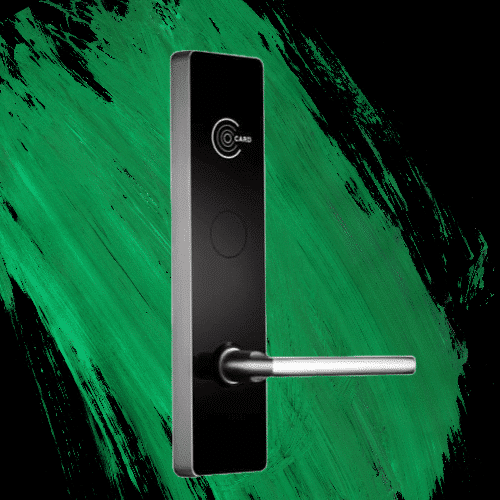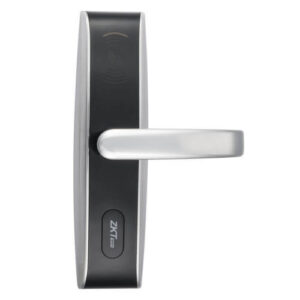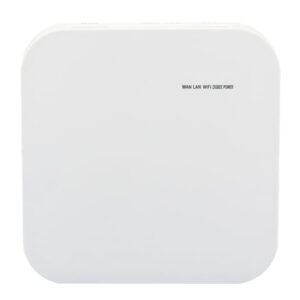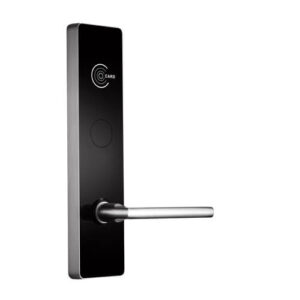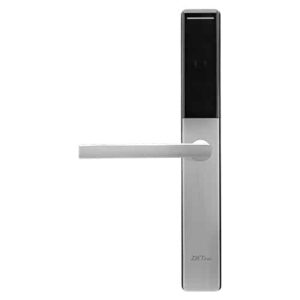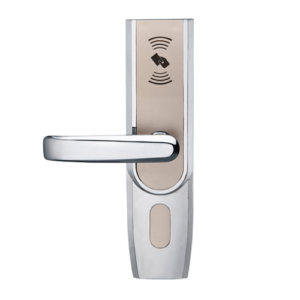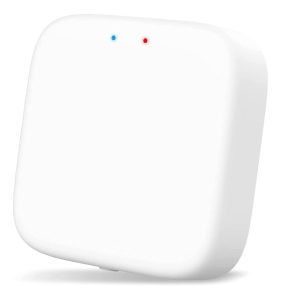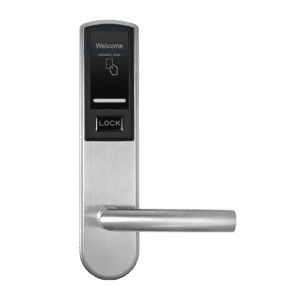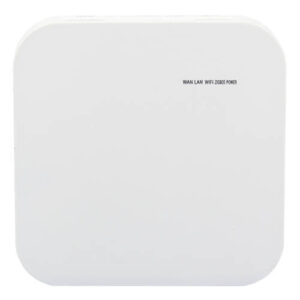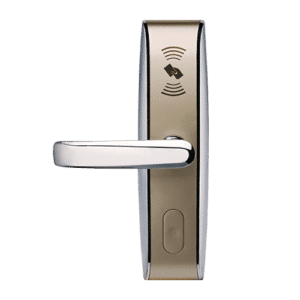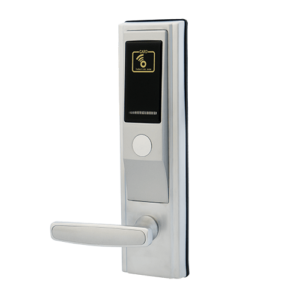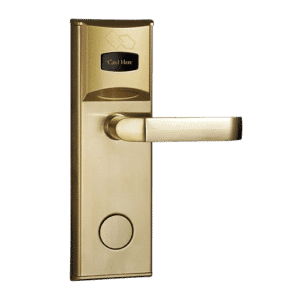
The Evolution of Hotel Locks
The hotel industry has always been at the forefront of ensuring guest safety and security. One of the most evident manifestations of this commitment is the evolution of hotel locks. From traditional mechanical keys to sophisticated electronic and smart locks, the journey of hotel locks is a testament to the industry’s adaptability and its relentless pursuit of enhancing the guest experience.
Key Takeaways:
- The transition from mechanical to electronic locks.
- The rise of smart locks and their integration with hotel management systems.
- The importance of security and guest convenience in shaping the future of hotel locks.
The Beginnings: Mechanical Locks
In the early days, hotels relied on mechanical locks. These were simple, key-based systems where each room had a unique key. While they served the purpose, they had several drawbacks:
- Loss of Key: If a guest lost their key, it posed a security risk until the lock was changed.
- Duplication: Mechanical keys could be easily duplicated, increasing the risk of unauthorized access.
- Wear and Tear: Over time, the locks and keys would wear out, requiring frequent replacements.
The Electronic Revolution
By the late 20th century, the hotel industry began transitioning to electronic locks. These locks, often card-based, offered several advantages over their mechanical counterparts:
- Re-programmability: If a card was lost, the lock could be quickly re-programmed, ensuring security.
- Audit Trails: Hotels could track when a room was accessed, providing an added layer of security.
- Integration with Hotel Systems: Electronic locks could be integrated with hotel management systems, allowing for seamless check-ins and check-outs.
Smart Locks: The Future is Here
With the advent of the internet and smart technologies, hotel locks underwent another transformation. Smart locks are the latest in the line of hotel security systems. They offer:
- Mobile Access: Guests can use their smartphones to access their rooms.
- Integration with IoT: Smart locks can be integrated with other hotel room amenities for a seamless guest experience.
- Enhanced Security: With features like biometric access and real-time alerts, smart locks provide unparalleled security.
For a deeper dive into smart locks, check out this product: ZKTeco ZL500: Cutting-Edge Wireless Hotel Lock.
Challenges and Considerations
While the evolution of hotel locks has been largely positive, it’s not without challenges:
- Cost: Advanced locking systems can be expensive to install and maintain.
- Technology Adaptability: Not all guests are tech-savvy. Hotels need to ensure that their locking systems are user-friendly for all guests.
- Security Concerns: As with all electronic systems, there’s a risk of hacking. Hotels need to invest in robust cybersecurity measures to protect their locking systems.
The Evolution of Hotel Locks
The hotel industry has always been at the forefront of ensuring guest safety and security. One of the most evident manifestations of this commitment is the evolution of hotel locks. From traditional mechanical keys to sophisticated electronic and smart locks, the journey of hotel locks is a testament to the industry’s adaptability and its relentless pursuit of enhancing the guest experience.
Key Takeaways:- The transition from mechanical to electronic locks.
- The rise of smart locks and their integration with hotel management systems.
- The importance of security and guest convenience in shaping the future of hotel locks.
The Beginnings: Mechanical Locks
In the early days, hotels relied on mechanical locks. These were simple, key-based systems where each room had a unique key. While they served the purpose, they had several drawbacks:
- Loss of Key: If a guest lost their key, it posed a security risk until the lock was changed.
- Duplication: Mechanical keys could be easily duplicated, increasing the risk of unauthorized access.
- Wear and Tear: Over time, the locks and keys would wear out, requiring frequent replacements.
The Electronic Revolution
By the late 20th century, the hotel industry began transitioning to electronic locks. These locks, often card-based, offered several advantages over their mechanical counterparts:
- Re-programmability: If a card was lost, the lock could be quickly re-programmed, ensuring security.
- Audit Trails: Hotels could track when a room was accessed, providing an added layer of security.
- Integration with Hotel Systems: Electronic locks could be integrated with hotel management systems, allowing for seamless check-ins and check-outs.
Smart Locks: The Future is Here
With the advent of the internet and smart technologies, hotel locks underwent another transformation. Smart locks are the latest in the line of hotel security systems. They offer:
- Mobile Access: Guests can use their smartphones to access their rooms.
- Integration with IoT: Smart locks can be integrated with other hotel room amenities for a seamless guest experience.
- Enhanced Security: With features like biometric access and real-time alerts, smart locks provide unparalleled security.
For a deeper dive into smart locks, check out this product: ZKTeco ZL500: Cutting-Edge Wireless Hotel Lock.
Challenges and Considerations
While the evolution of hotel locks has been largely positive, it’s not without challenges:
- Cost: Advanced locking systems can be expensive to install and maintain.
- Technology Adaptability: Not all guests are tech-savvy. Hotels need to ensure that their locking systems are user-friendly for all guests.
- Security Concerns: As with all electronic systems, there’s a risk of hacking. Hotels need to invest in robust cybersecurity measures to protect their locking systems.
Looking Ahead
The future of hotel locks is bound to be exciting. With advancements in technology, we can expect even more secure, convenient, and guest-centric locking solutions. Hotels will continue to balance the need for security with the desire for guest convenience, driving innovations in the space.
For more on the latest in hotel lock technology, explore ZKTeco LH6800: Modern Design Hotel Door Lock.
The Pinnacle of Hotel Security: ZKBioHLMS
In the ever-evolving landscape of hotel security, ZKTeco has emerged as a leader with its innovative ZKBioHLMS platform. This app-less wireless smart hotel platform is a game-changer in the industry. Without the need for guests to download or register for an app, they can check-in and request room services through an intuitive HTML5 user interface.
- Seamless Integration: ZKBioHLMS integrates with multiple hotel systems such as access control, elevator control, and personnel management.
- Smart Operation: The platform enhances guest experiences with smart deployment and check-in features.
- Versatility: Whether using smartphones or key cards, ZKBioHLMS offers a "One-Card-Solution" for easy access to all hotel amenities.
ZKTeco’s Premier Hotel Locks
- ZKTeco LH5000: RFID Hotel Lock: A cutting-edge RFID lock that offers unparalleled security and convenience for hotel guests. Its integration with the ZKBioHLMS system ensures a seamless guest experience from check-in to check-out.
- ZKTeco LH6800: Modern Design Hotel Door Lock: A blend of modern design and advanced technology, this lock is a testament to ZKTeco’s commitment to innovation. Its compatibility with the ZKBioHLMS platform ensures that guests have a hassle-free stay.
Key Takeaways
- Historical Evolution: Hotel locks have evolved from simple mechanical systems to sophisticated electronic and smart access solutions.
- ZKBioHLMS Advantage: ZKTeco’s ZKBioHLMS platform represents the pinnacle of hotel security solutions.
- Modern Lock Solutions: ZKTeco’s hotel locks, such as the ZKTeco LH5000 and ZKTeco LH6800, integrate seamlessly with the ZKBioHLMS platform.
- Future of Hotel Security: As technology continues to advance, hotel security solutions will evolve, with platforms like ZKBioHLMS leading the way.

